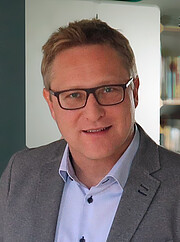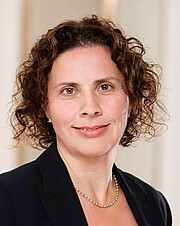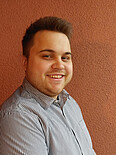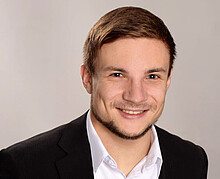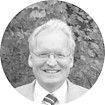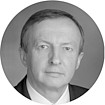About Us
Director of the Gambling Research Center
| steffen.otterbach@uni-hohenheim.de Main Focus
|
Short Vita
Since 2021 | Managing director of the Gambling Research Center (University of Hohenheim) |
2013 | Doctor in economics (University of Hohenheim, Dr. oec.) |
2006 | Studies in Economics (Dipl. oec.) at the University of Hohenheim and Jönköping International Business School (Sweden). |
Further Information
Dr. Steffen Otterbach completed his doctorate at the Department of Household and Consumer Economics, Institute for Health Care & Public Management at the University of Hohenheim. With a focus on applied empirical economic and social research, he addresses a wide range of research questions with an interdisciplinary link to sociology, psychology, occupational and nutrition sciences, business ethics, and health economics. His research includes the effects of working conditions on health and well-being as well as (gender-specific) inequalities and mobility in the labor market. Another focus is on a relatively young sub-discipline of economics, the economics of happiness, which addresses the question of what makes people happy besides income and material wealth.
Research collaborations, presentations and conferences have taken Dr. Otterbach to international research institutions such as the Melbourne Institute of Applied Economic and Social Research (Australia), the Organisation for Economic Co-operation and Development (OECD) in Paris, the African Population and Health Research Center in Nairobi (Kenya) or the Institute for Social and Economic Research in Makhanda (South Africa). Shortly before joining the Gambling Research Unit, he succeeded in acquiring a large-scale project funded by the German Federal Ministry of Education and Research together with the Research Center for Health Sciences at the University of Hohenheim, the University of Nairobi and Eggerton University. His work has been published in renowned international journals such as World Development, Health Policy, Business Ethics, Social Indicators Research and Economic Inquiry. He is Visiting Professor at the Rhodes University in Makhanda, South Africa.
Management Assistant
| anne.boehm@uni-hohenheim.de |
Research Associate
| marvin.raab@uni-hohenheim.de Main Focus
|
Short Vita
Since January 2025 | Research associate, Gambling Research Center (University of Hohenheim) |
2018 - 2024 | Studies of mathematics (Julius-Maximilians-Universität Würzburg) |
Further Information
Marvin Raab joined the Gambling Research Center as a research associate in January 2025. He is particularly interested in mathematical and statistical issues related to gambling.
Research Associate
| johannes.singer@uni-hohenheim.de Main Focus
|
Short Vita
Since August 2020 | Research associate, Gambling Research Center (University of Hohenheim) |
2012 – 2019 | Master Studies in “Political and Social Sciences” (Julius-Maximilians-Universität Würzburg) |
Further Information
Johannes Singer has been a research assistant at the Gambling Research Center since August 2020. As part of his cumulative dissertation, he is conducting research on gambling advertising in social media. His work focuses on the text analysis of advertising and user data from social media, as well as the analysis of the perception and impact of gambling advertising, including by influencers on social networks. For research purposes, Johannes Singer uses qualitative and quantitative methods of empirical social research, as well as machine learning techniques, mainly different methods of topic modeling.
Research Associate
| lorenz.weissenberg@uni-hohenheim.de Main Focus
|
Short Vita
| Since October 2025 | Research Associate, Gambling Research Center (University of Hohenheim) |
| 2022 – 2025 | Master „Economics“, University of Hohenheim |
| 2020 – 2025 | Research Assistant, Gambling Research Center (University of Hohenheim) |
| 2018 – 2022 | Bachelor „Business Administration and Economics“, University of Hohenheim |
Further Information
Lorenz Weißenberg has been a research associate at the Gambling Research Center since October 2025. Prior to this, he worked as a research assistant at the same institution for five years and completed a Master's degree in Economics, specialising in econometrics and statistics, at the University of Hohenheim. His research focuses on analysing health data, particularly with regard to comorbidities, treatment pathways and the costs associated with gambling addiction. He is also interested in methods for the early detection of problematic gambling behaviour.
Research Associate
| andrea.woehr@uni-hohenheim.de Main Focus
|
Short Vita
Since February 2008 | Research Associate, Gambling Research Center, University of Hohenheim |
2005 - 2008 | Compact course Cultural Management, Pädagogische Hochschule Ludwigsburg (extra-occupational) |
1996 - 2000 | Freelance and scientific staff member, Fraunhofer-IAO/Institut für Arbeitswissenschaft und Technologiemanagement, University of Stuttgart |
1996 | Master’s degree (Magistra Artium), Romanisches Seminar, Faculty of Humanities, Eberhard Karls Universität Tübingen |
Further Information
Andrea Wöhr M.A. has been a research assistant at the Gambling Research Center since 2008. Her research interests focus in particular on the stigmatisation of people with a gambling disorder and on female gamblers. She has given lectures on these and other topics at national and international conferences and published articles in journals and anthologies. Within the Gambling Research Center, she is also involved in the website, the Gambling Symposium and the newsletter.
Andrea Wöhr is a member of the Deutschen Gesellschaft für Suchtforschung und Suchttherapie e. V. (DG-Sucht - German Society for Addiction Research and Addiction Therapy) and the Fachverband Glücksspielsucht e. V. (Professional Association for Gambling Addiction). As a reviewer, she supports various professional journals as well as GREO Evidence Insights.
| Prof. Dr. Tilman Becker former director | ||
| Dr. Thomas Krause | ||
| Dr. Vadim Kufenko | ||
Dr. Marius Wuketich | ||
The Gambling Research Centre was founded in 2004 as an institution of the University of Hohenheim with the aim of creating a reliable basis for decisions in politics and business and initiating expert discussions.
We are convinced that, in addition to our own scientific work, this task can best be achieved through (international) networking of the relevant stakeholders from science, administration, politics, addiction support, those affected and state and private gambling providers. We see ourselves as a platform and link between science, politics, business and society.
Our central concern is to bundle interdisciplinary research on gambling and at the same time to promote our own original scientific research in a targeted and committed manner.
- Membership of the European Association for the Study of Gambling (EASG)
- Memberschip of the Deutschen Gesellschaft für Suchtforschung und Suchttherapie e.V. (DG-Sucht) (Andrea Wöhr)
The Gambling Research Centre is an institution of the University of Hohenheim. Its work is funded by the Baden-Württemberg Ministry of Science, the University of Hohenheim, the sponsorship association Verein zur Förderung der Glücksspielforschung e. V. and donations.
The Associate Scientists are central to the interdisciplinary scientific work of the Gambling Research Center. They include scientists from various research institutions and specialist areas who have specialised in gambling research. | |
 | Dr. Michael Auer neccton ltd. Expertise: Statistik, Psychologie |
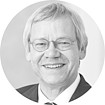 | Prof. Dr. Tilman Becker Universität Hohenheim, Forschungsstelle Glücksspiel Expertise: Verbraucherverhalten; Märkte für Spiele und Wetten |
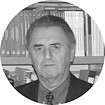 | Prof. Dr. Karl Bosch Universität Hohenheim, Institut für Angewandte Mathematik und Statistik Expertise: Mathematik und Statistik |
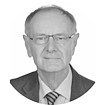 | Prof. em. Dr. Armin Dittmann Universität Hohenheim, Institut für Rechtswissenschaft Expertise: Öffentliches Recht |
Prof. Dr. Jörg Ennuschat Expertise: Öffentliches Recht, Verwaltungsrecht | |
 | Prof. Dr. Christian Ernst Expertise: Management sozialer Dienstleistungen, Managerial Accounting |
 | Prof. Dr. Mira Fauth-Bühler FOM Hochschule für Oekonomie & Management, Institut für Wirtschaftspsychologie (iwp) Expertise: Neuro- und Verhaltenswissenschaften, Psychologie, Neuroökonomie, Gehirnforschung, inklusive bildgebende Verfahren |
 | Dr. Ingo Fiedler Concordia University Montreal und Blockchain Research Lab gGmbH in Hamburg Expertise: Wirtschaftswissenschaften Forschungsschwerpunkte Glücksspiel: Konvergenz von Gaming und Gambling, Regulierung von Onlineglücksspielen, Blockchain und Glücksspiele |
 | Prof. Dr. Ihno Gebhardt, LL.M.oec.int. Hochschule der Polizei des Landes Brandenburg, Vorsitzender des wissenschaftlichen Beirates der Gemeinsamen Glücksspielbehörde der Länder, Leiter a. D. der für das Glücksspielwesen zuständigen Stabstelle im brandenburgischen Innenministerium, Mitglied des Fachbeirates Glücksspielsucht a. D. Expertise: Gesetzgebung und Rechtsprechung |
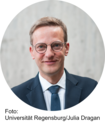 | Univ.-Prof. Dr. Bernd J. Hartmann, LL.M. (Virginia) Expertise: Staats- und Verwaltungsrecht; Öffentliches Wirtschaftsrecht; Rechtsfragen der Digitalisierung |
 | Dr. Tobias Hayer Expertise: Psychologische Suchtforschung, Empirische Gesundheitsforschung |
| Prof. Dr. Julia Hoernle Institute of Computer & Communications Law Queen Mary University of London Expertise: Internetrecht, Verbraucherschutz, Regulierung des Internets (Jugendmedienschutz, Grundrechte, Datenschutz, Telemediendienstleistungen) | |
| Prof. Dr. Holger Kahle Universität Hohenheim, Institut für Betriebswirtschaftslehre Expertise: Betriebswirtschaftliche Steuerlehre, Prüfungswesen | |
 | Dr. Jens Kalke Institut für interdisziplinäre Sucht- und Drogenforschung (ISD) Expertise: Interdisziplinäre Suchtforschung, Empirische Sozialforschung |
 | Dr. Steffen Otterbach Universität Hohenheim, Institut für Health Care & Public Management Expertise: Arbeitsmarkt- und Gesundheitsökonomik; Empirische Wirtschafts- und Sozialforschung; Ökonomie des Risikoverhaltens Forschungsschwerpunkte: Machine Learning und Big Data, insbes. Analyse des Spielverhaltens; Spielerschutz und Früherkennung problematischen Spielverhaltens; Evaluation von Spielerschutzmaßnahmen; Normalisierung des Glücksspiels durch Werbung; Gaming und Gambling; Glücksspielwerbung in sozialen Medien |
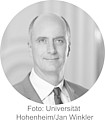 | Prof. Dr. Ulrich Palm Universität Hohenheim, Institut für Rechts- und Sozialwissenschaften Expertise: Verfassungsrecht, Steuerrecht, Europarecht |
 | Prof. Dr. Christian Pohl Hochschule Heilbronn, Betriebswirtschaft, Marketing- und Medienmanagement Expertise: Wirtschaftsinformatik und Medientechnologie |
 | Dr. Anke Quack Kompetenzzentrum Spielerschutz & Prävention, Klinik und Poliklinik für Psychosomatische Medizin und Psychotherapie, Universitätsmedizin Mainz Expertise: Kommunikationswissenschaften mit dem Schwerpunkt Gesundheitskommunikation, Konzeption, Implementierung und Evaluation von Spielerschutzkonzepten |
 | Dr. Raffaello Rossi Expertise: Marketing und Public Policy Forschungsinteressen: Wirkung von Glücksspielwerbung auf Kinder und Jugendliche, Glücksspielwerbung auf sozialen Medien, europäische Regulierung von Werbung und Marketing, Glücksspielwerbung im Sport, Normalisierung des Glücksspiels durch Werbung |
 | Prof. Dr. Tobias Scholz Expertise: Esports Management und Personalmanagement |
 | Prof. Dr. Heino Stöver Institut für Suchtforschung der Fachhochschule Frankfurt am Main (ISFF) Expertise: Genderforschung, HIV/AIDS-Forschung, Gesundheitsforschung in geschlossenen Institutionen, Gesundheitsförderung für Marginalisierte (Drogenkonsumenten, Gefängnisinsassen) |
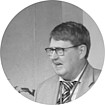 | Dr. Hans-Ulrich Stühler Leiter des Rechtsamts der Stadt Reutlingen a. D., Lehrbeauftragter an der Universität Konstanz Expertise: Baurecht |
| Prof. Dr. Rüdiger Wulf Eberhard-Karls-Universität Tübingen Expertise: Kriminologie, Jugendstrafrecht, Strafvollzug | |
 | Günther Zeltner Evangelische Gesellschaft Stuttgart e.V. Expertise: Behandlung von Menschen mit Glücksspielproblemen, Entwicklung und Umsetzung von Präventionskonzepten, Kooperation mit allen beteiligten Parteien |
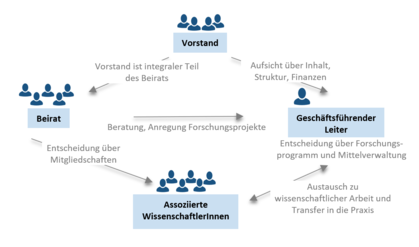
The bodies of the Gambling Research Center are the Management Board, the Advisory Board and the Managing Director; the Associated Scientists support the interdisciplinary scientific work of the Gambling Research Center and the transfer into practice.

 Founded in 2004, the Gambling Research Center at the University of Hohenheim is a pioneer of interdisciplinary gambling research in Germany. The aim is to create well-founded scientific findings for decision-makers from politics, treatment and the economy through original scientific research and by bringing together research from different specialist areas. The networking of different actors and the transfer of knowledge are central features of this. The interdisciplinary composition of the team also reflects the multidisciplinary nature of gambling. Current key topics range from algorithm-based systems for the early detection of gambling problems and the promotion of gambling in social media to socio-political issues such as the stigmatization of gamblers.
Founded in 2004, the Gambling Research Center at the University of Hohenheim is a pioneer of interdisciplinary gambling research in Germany. The aim is to create well-founded scientific findings for decision-makers from politics, treatment and the economy through original scientific research and by bringing together research from different specialist areas. The networking of different actors and the transfer of knowledge are central features of this. The interdisciplinary composition of the team also reflects the multidisciplinary nature of gambling. Current key topics range from algorithm-based systems for the early detection of gambling problems and the promotion of gambling in social media to socio-political issues such as the stigmatization of gamblers.
